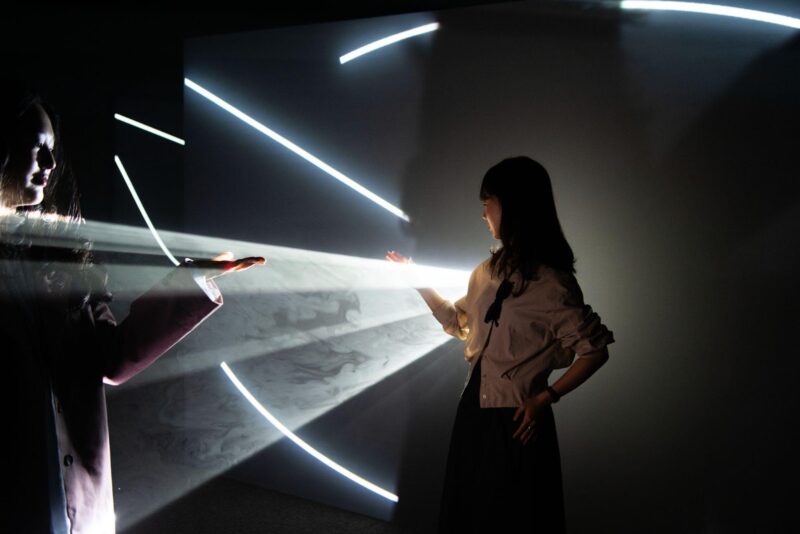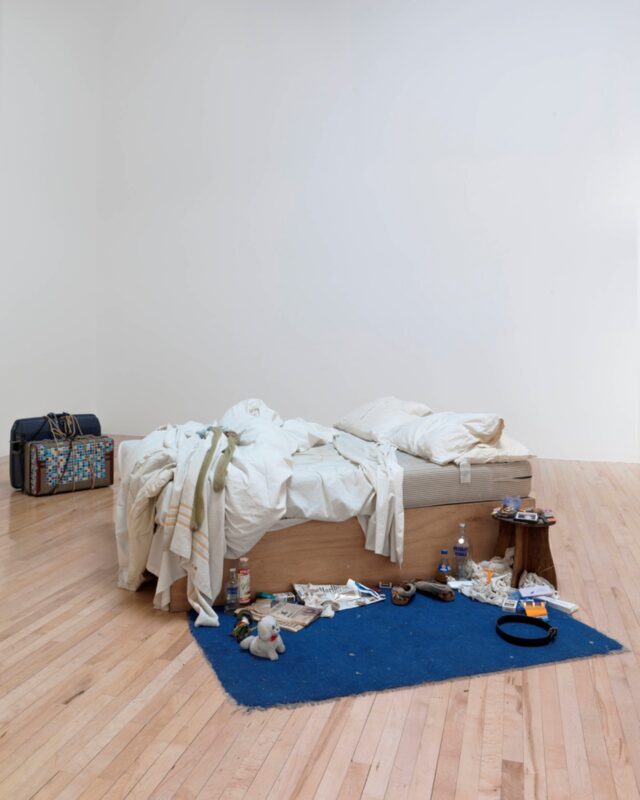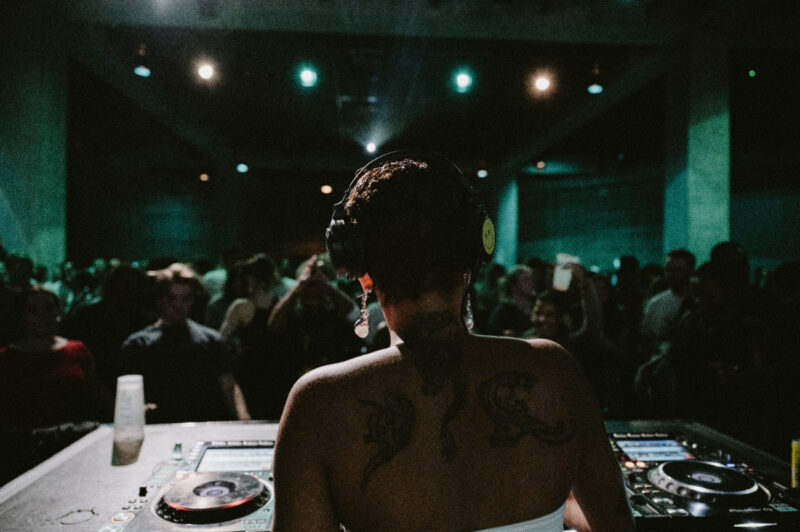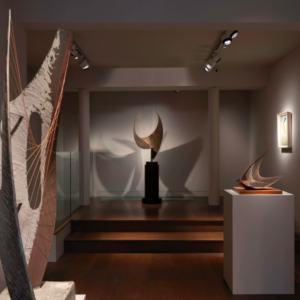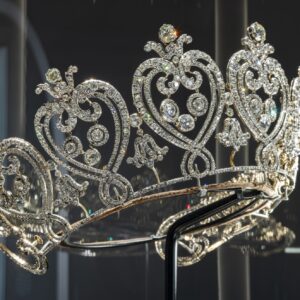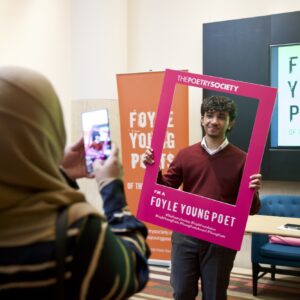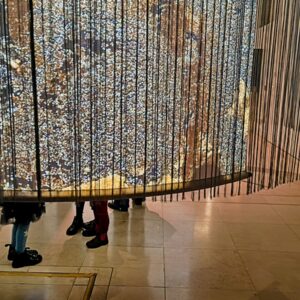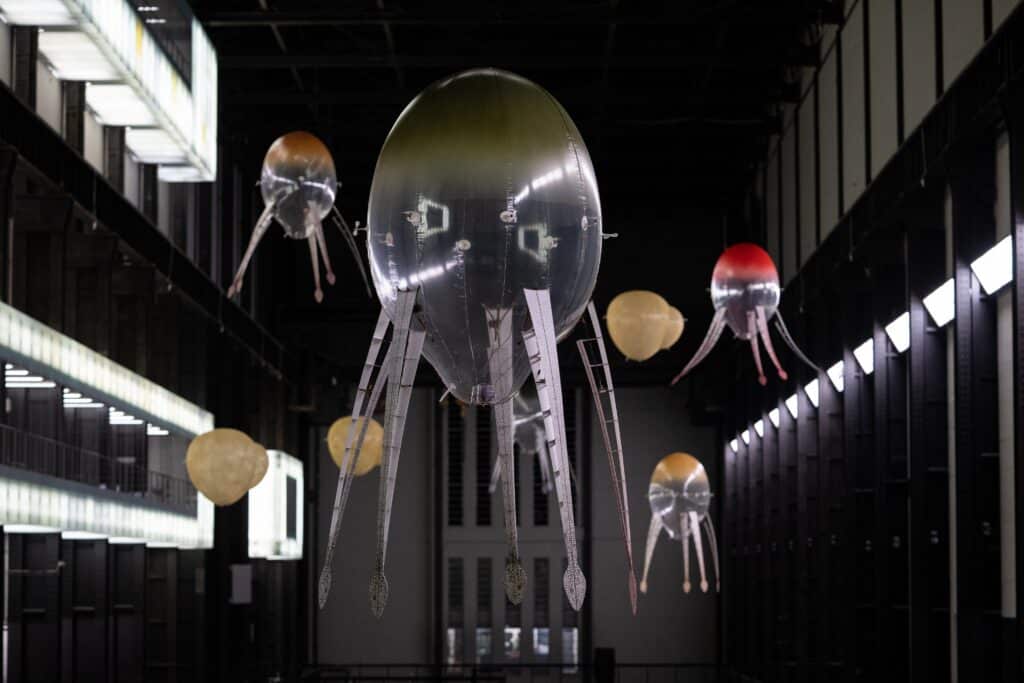
Tate Modern today unveiled a major new work by artist Anicka Yi ‘In Love With The World’ as the renowned Tate Commission returns to the gallery. This captivating installation is Yi’s largest and most ambitious project to date, transforming the Turbine Hall at the heart of Tate Modern with her vision of a new kind of ecosystem. Referencing the hall’s original purpose of housing Bankside Power Station’s turbines, Yi’s commission populates the space with machines once again. Moving through the air, her floating machines – called aerobes – prompt viewers to think about new ways that machines might inhabit the world. It is the sixth Hyundai Commission, an annual series of site-specific works created for the Turbine Hall, as part of a partnership between Tate and Hyundai Motor.
Yi has become known for her experimental work which explores the merging of technology and biology, focusing on breaking down distinctions we hold between plants, animals, micro-organisms and technology. Through this work, she asks viewers to think about how removing these distinctions affects our understanding of ourselves as humans, and the ecosystems we live in. For her new commission at Tate Modern, Yi began with the question of what a ‘natural history of machines’ could look and feel like. Her project builds on previous work speculating on the possibilities of machines evolving into independent forms of life.
Two species of aerobes explore the Turbine Hall, exhibiting individual and group behaviours in response to different elements of their environment. ‘Xenojellies’ have semitransparent bodies each with a different coloured top and patterned tentacles, while ‘planulae’ are bulbous and covered by short yellow hair. Both species are filled with helium, propelled by rotors and powered by a small battery pack. Their biomorphic forms reference both ocean lifeforms and mushrooms, reflecting the varying roles and levels of complexity amongst organisms in an ecosystem. These aerobes allow Yi to imagine new possibilities for artificial intelligence, inspired by the diverse ways that organisms learn through their bodies and senses.
Integral to Yi’s commission as well as her wider practice are scent and air. She is interested in the politics of air and how this is affected by changing attitudes, inequalities, and ecological awareness. She approaches scent as a medium for subtly shifting perceptions and giving presence to the air that we all share, and on which we depend. For Tate Modern, the artist has created unique scentscapes, on launch today the scent was based on cholera, that transition from one week to the next, evoking odours linked to a specific time in the history of Bankside. Visitors may smell spices thought to counteract the Black Death in the 14th century, marine scents related to the Precambrian period long before humans inhabited earth, coal and ozone conjuring up the Machine Age of the 20th century, or vegetation from the Cretaceous period. These scentscapes create an environment that connects the aerobes with the history of the site and all other organisms that share their habitat. As the odours change between each unique scentscape, the aerobes’ behaviour and interactions will develop in response.
About the Artist
Anicka Yi was born in Seoul in 1971 and now lives and works in New York City. She has been the subject of solo exhibitions at museums including the Solomon R. Guggenheim Museum in New York, Kunsthalle Basel, and the Fridericianum in Kassel. Her work featured in the Venice Biennale in 2019, the Whitney Biennial in 2017 and the Gwangju Biennale in 2016, as well as in many group exhibitions around the world. She won the Hugo Boss Prize in 2016 and has held residencies and fellowships at the Berggruen Institute in Los Angeles, the Headlands Center for the Arts, and the Center for Art Science and Technology at MIT. anickayistudio.biz
